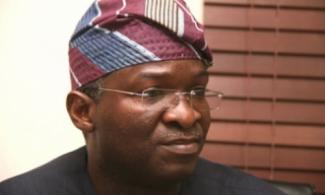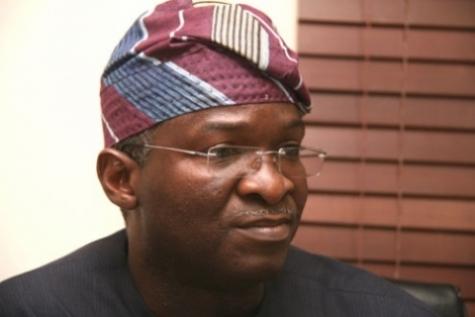
Fashola spoke at the 11th Nigerian Association for Energy Economics& International Association for Energy Economics Annual Conference in Abuja where he was represented by the Permanent Secretary in the Ministry of Power, Works and Housing, Louis Edozien
The Minister of Power, Works and Housing, Mr. Babatunde Fashola has observed that the failure of the Nigerian power sector to work has nothing to do with technology.
Fashola spoke at the 11th Nigerian Association for Energy Economics& International Association for Energy Economics Annual Conference in Abuja where he was represented by the Permanent Secretary in the Ministry of Power, Works and Housing, Louis Edozien.
He said, “The reason why our industry is not delivering has very little to do with technology; it has to do more with the economics of energy, the politics of energy, the legality of an industry where multiple private and public companies are interacting through contracts.”
The minister also claimed that Nigeria has not displayed the zeal required to build an economy beyond oil.

Also, speaking at the event, the Executive Secretary, Petroleum Technology Development Fund, Aliyu Gusau, and a former Group Managing Director, Nigerian National Petroleum Corporation, Funsho Kupolokun noted that the oil and gas sector was still very far from being transparent.
“Everybody is talking about transparency in the petroleum industry. Everybody is talking about it; what is happening is that we are still not doing it. We keep talking about it.
“In 1999, when I came back into the government system, it was a key issue; a number of bodies were set up by the government; yet today, we are still talking about it.”
The former NNPC GMD stated further that the difficulties being faced in the industry would continue if the downstream sector is not deregulated.
He said, “We have been talking about deregulation since 1993. It went up and down with fuel price moving up and down. If we had continued to move gradually that way, we would have finished the liberalization of the downstream sector. But we reversed ourselves and today, we are in a scenario where we are still talking about deregulation.
“How many years, some 25 years we have been talking of deregulating the downstream sector, yet, it is still undone. I just hope we do it and do it rapidly because unless and until it is done, we will continue to have the problems that we have in the downstream petroleum sector.”
On the other hand, Gusau said more focus should be placed on the midstream and downstream sector of the industry.
“I believe that oil is still central. The oil industry in Nigeria is the only sector that has the capacity to provide the foundation for the post-oil economy journey. But it cannot be done with the current business model that is focused essentially on the upstream.
“The business of taking oil from the ground and marketing it across the globe has to stop. The only way that the oil and gas industry can provide the foundation for the journey of a post-oil economy is to move from its focus on the upstream, down to the midstream and downstream where the value is created,” he said.
Gusau added, “This is the area where value, wealth and jobs will be created. This is the area that will create the fertilizer, the electricity and the petrochemicals that we require. This should be, going forward, the norm in the Nigerian oil and gas industry. But what is the strategy to achieve this?
“Unfortunately, I have gone through all the four bills of the petroleum industry waiting to become law. I have seen the fiscal and regulatory provisions of the midstream and the downstream, but I have not seen anything in all the four bills that incentivize value generation. This is the challenge I must put forward, because this is the key in our journey to a post-oil economy in Nigeria.”